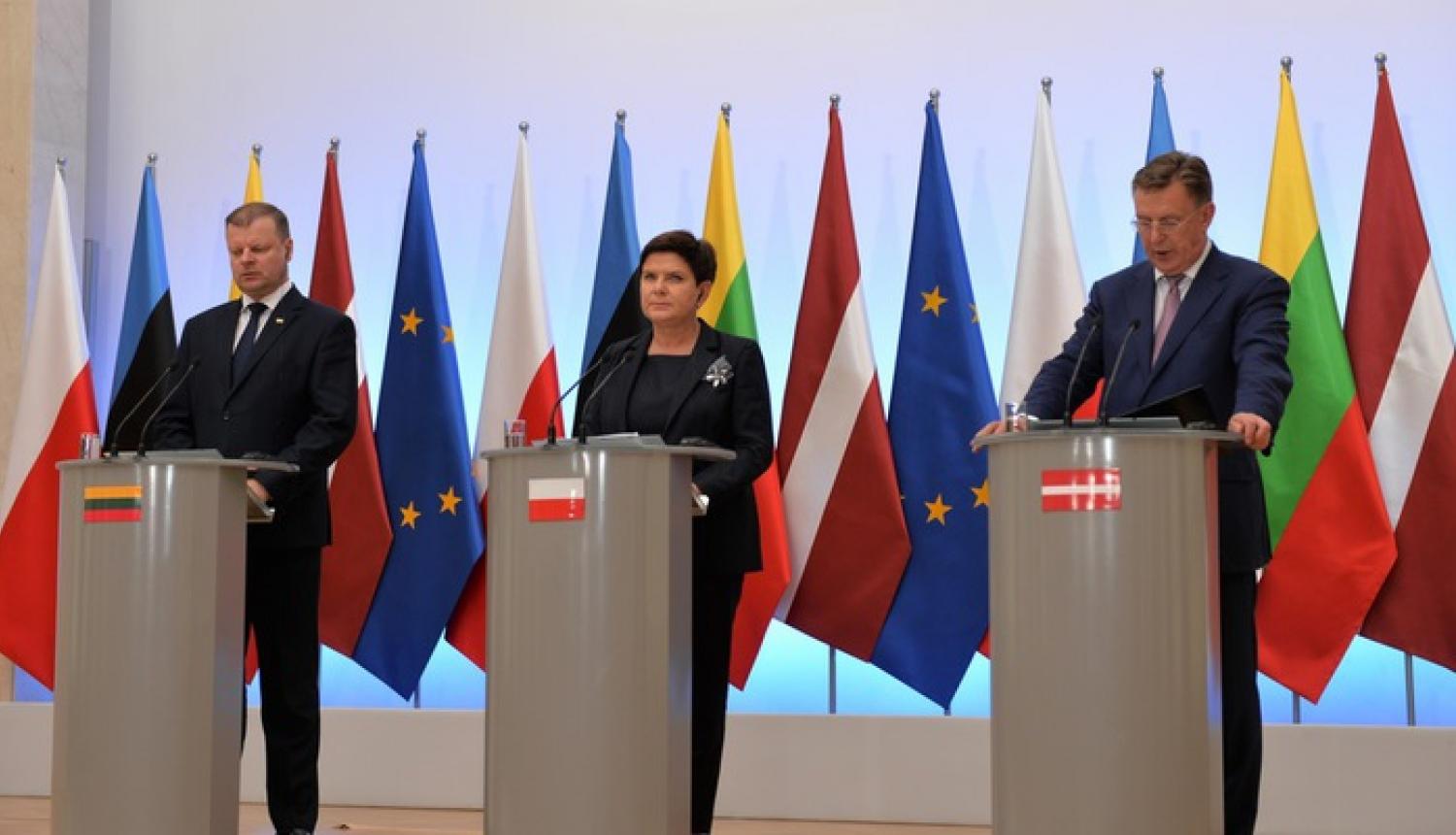On Tuesday 5 September, Prime Minister Māris Kučinskis met with Prime Minister of Poland, Beata Szydło and Prime Minister of Lithuania, Saulius Skvernelis in Warsaw.
During the meeting, the officials discussed the issues relating to the future of Europe, cooperation with the Eastern Partnership countries, joint regional projects, as well as security in the region.
In his address to the Heads of Government of Poland and Lithuania, M.Kučinskis said that the European Union's single market needs to be strengthened and its actual problems have to be addressed, while not at the expense of competitiveness and productivity. Concerning the EU budget after 2020, the Prime Minister stressed that the elimination of inequalities between the EU member states is the priority of Latvia. He also highlighted the need for the Baltic States to cooperate with each other by extending this cooperation also to Poland.
"We need to think about joint action to provide funding for the implementation of large regional infrastructure projects. It is worth highlighting the Rail Baltica, said M. Kučinskis.
He also expressed his satisfaction that the Rail Baltica project is continuously evolving. The Rail Baltica was the only EU project that was presented at the G7 Transport Ministers' Meeting held this summer. Work with Finland is underway to agree on its participation in the project as a shareholder. Poland's active participation in the project is essential.
As regards the synchronization of the Baltic electricity grids, Prime Minister M. Kučinskis pointed out that the stability and cost-effectiveness of the system should be the priorities. Latvia supports the synchronization of Baltic networks with continental Europe through Poland with two AC lines. According to the results of the research carried out by the EU's Joint Research Centre, it is technologically safest and the least costly solution.
At the same time, the representatives of all countries expressed a negative attitude towards the Nord Stream 2 project implemented by Russia.
At the meeting of the three Heads of Government, attention was also drawn to the Eastern Partnership and the Eastern Partnership Summit scheduled for Brussels in November.
"We believe that the decision to introduce visa-free travel with Ukraine and the ratification of the EU-Ukraine Association Agreement is an important step towards strengthening the EU-Ukraine relations. Now Ukraine needs to continue work on the full implementation of the Association Agreement. Progress has been made in the reform process since 2014, but much remains to be done," said M. Kučinskis.
During the Warsaw talks, special attention was paid to security issues. The need to further develop the capability to fight hybrid hazards both at national level and internationally was emphasized. We devote particular attention to strategic communication and cyber security issues, as well as strengthen internal coordination and external borders. Latvia, Estonia, Lithuania and Poland have joined the European Centre for Excellence for countering hybrid threats. We are ready to be actively involved in its future work. We expect that the Centre will contribute to the hybrid risk analysis and fight against it.
As regards Russia's military training "Zapad" in Belarus, the officials emphasized that the training cannot be viewed in isolation from the overall security situation and Russia's activities in our region since the events in Ukraine. In the light of past experience of joint military exercises organized jointly by Russia and Belarus, the main problem at the moment is the lack of transparency.
It was originally planned that Jüri Ratas, Prime Minister of Estonia will also participate in the Warsaw talks, however he could not take part, and Estonia was represented at ambassadorial level.
Andrejs Vaivars
Press Secretary to the Prime Minister
Mob.: 29228678
E-mail: Andrejs.Vaivars@mk.gov.lv



